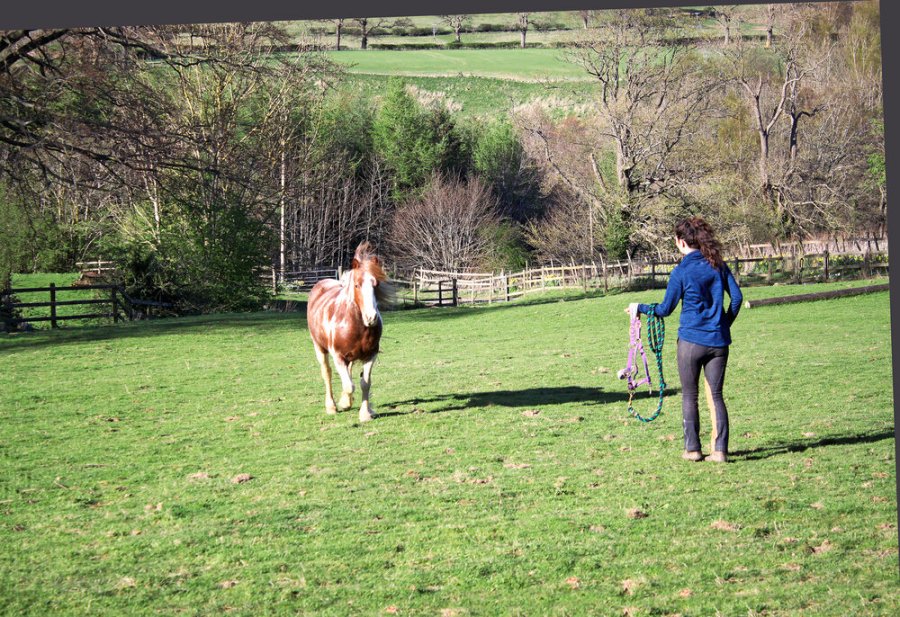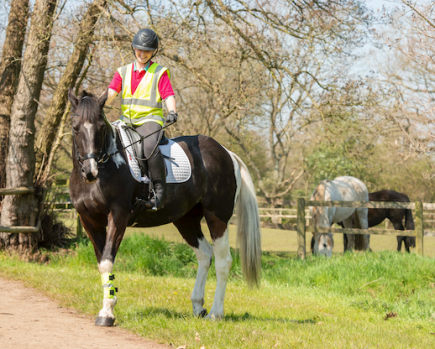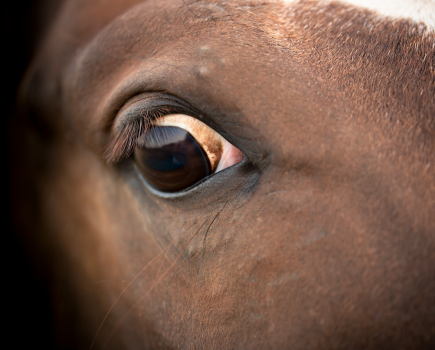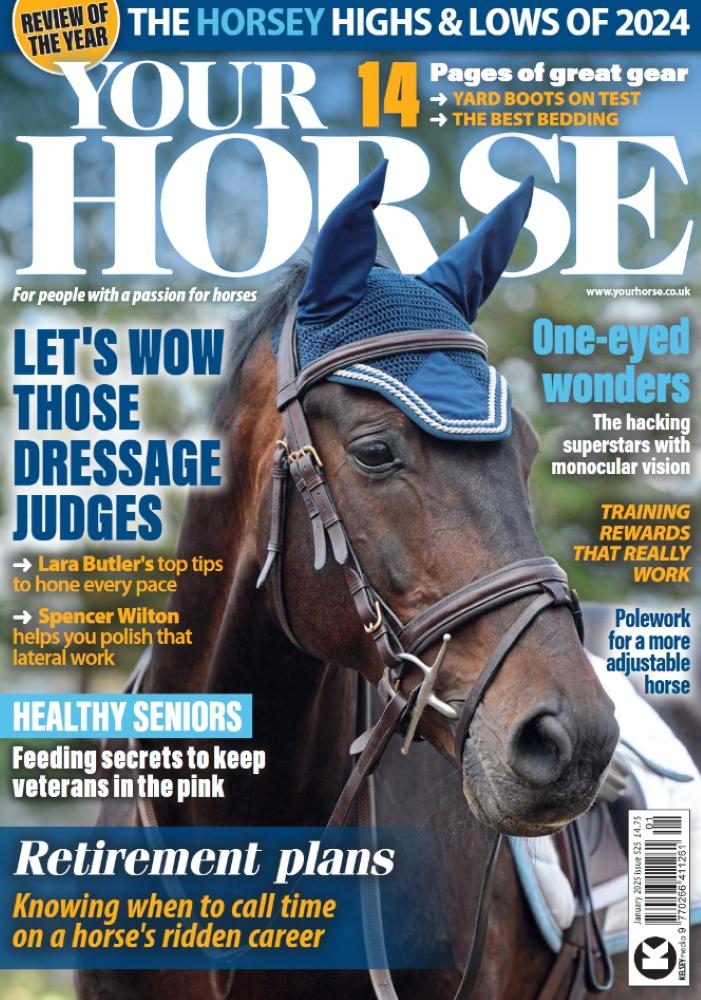Is your horse a master at playing cat and mouse when it’s time to come in from the field? Trainer Hannah Weston explains why some equines baulk at being caught.
You’re standing in the middle of a field, headcollar in hand, as well as a carrot. You’ve been here for a frustrating 20 minutes. But it’s not the first time.
It happens on every occasion you attempt to bring your horse in for a ride. He leads you a merry dance, coming close one minute — but not quite close enough to be caught — and then turning tail and rushing off in the opposite direction the next.
Dealing with horses who are difficult to catch is at best frustrating, and at worst a major concern, especially if you need to bring your horse in for an emergency problem that requires a vet or farrier visit — and all the while they are waiting in the wings!
In order to address the problem, though, we need first to look at why horses behave in this way. Like all animals, horses repeat behaviours that make them feel good, and avoid behaviours that make them feel bad. In the case of one resisting being caught, this shows that he feels better in the field than being caught and brought in.
So what are the most common reasons for catching problems?
1 Separation anxiety
Horses are herd animals with a strong instinct to stay with their herd-mates at all times. In a domestic environment, horses are often taken away from their companions, which can cause some much stress and anxiety.
If being caught causes your horse to feel that fear and separation distress, he’ll try to avoid letting you put on his headcollar and leadrope in order to remain in the comfort and safety of the herd.
2 Restricted grazing and movement
In the wild, horses have constant access to forage and freedom. This is often highly restricted when they are kept in small paddocks or stables, and this management can cause some horses frustration.
If your horse isn’t getting enough turnout with his companions, he may resist coming in from the field where all of his needs are being met.
3 Unpleasant consequences when caught
Since horses will avoid situations that feel unpleasant, if your horse is being ridden in an ill-fitting saddle, or is being trained in a way that he finds challenging, he will avoid these situations as best he can, which can mean evading capture when he’s grazing.
4 Habitual or learned behaviour
Some horses experience negative situations and, even once the situation has been rectified, the running away behaviour remains.
It has now become habitual and is cued by someone approaching him in the field. This behaviour can also be learned, such as a foal who learns to run away from humans because his dam does.
Management changes
So where should you begin when addressing your horse’s catching issues? A good place to start is to look at any helpful management changes you can make, such as:
- Ensuring that your horse is getting enough turnout with his field companions.
- Enriching your horse’s stable with plenty of forage and boredom busters, such as licks and stable toys, so that he’s happy to come in, and ensuring that he has companions nearby who
he can see. - Coordinating your horse’s training regime with others so that you’re bringing him in and exercising him with a friend for a while to establish confidence.
- Changing your horse’s routine so that being caught is followed by positive experiences, such as giving him his bucket feed when he comes in, instead of just before he gets turned out.
Grab the latest issue for the full article to find out how clicker training can help you catch your horse.
Don’t miss the latest issue of Your Horse Magazine, jam-packed with training and veterinary advice, horse-care tips and the latest equestrian products, available now.










